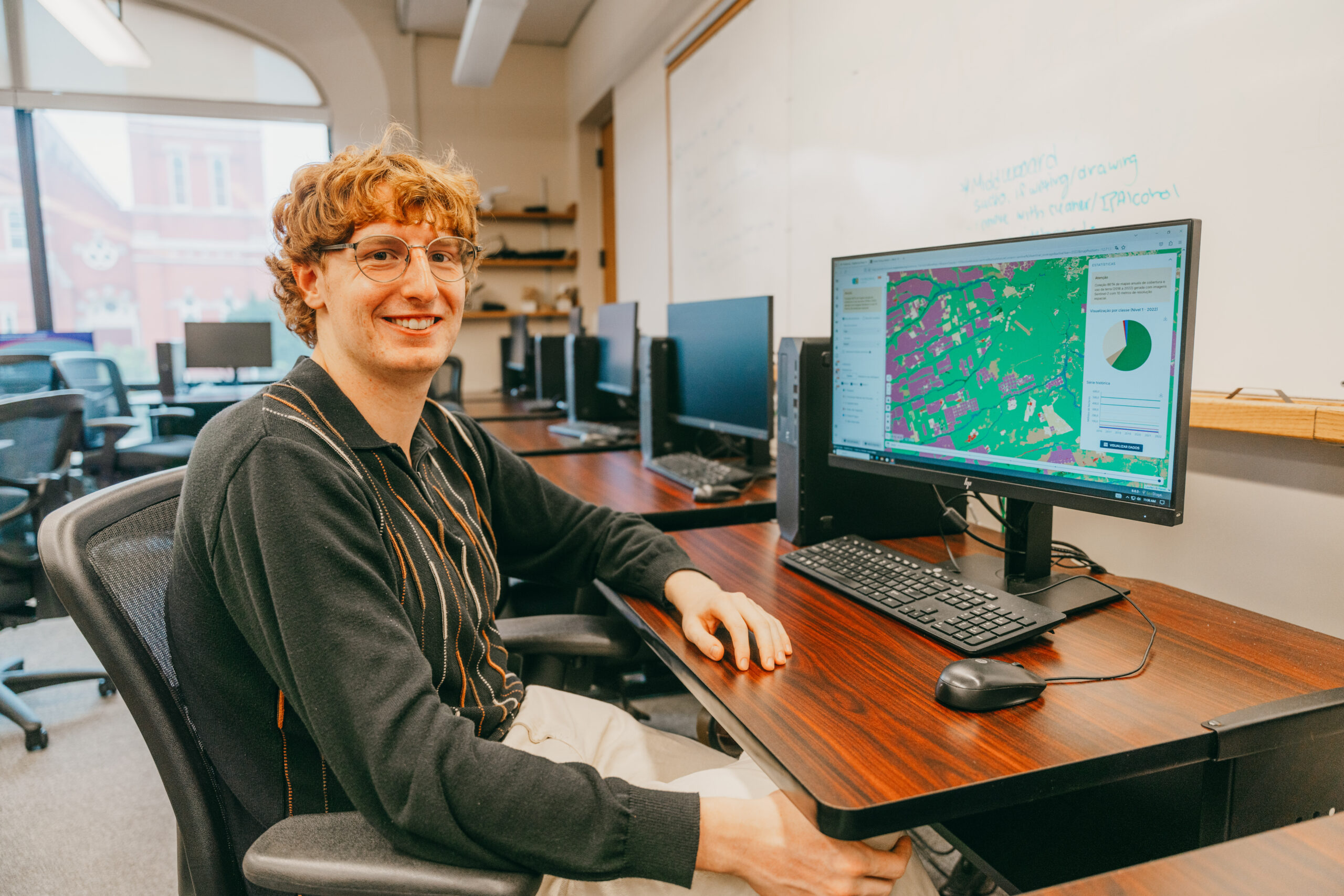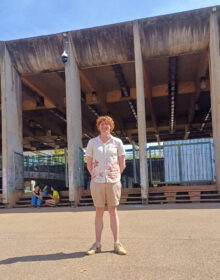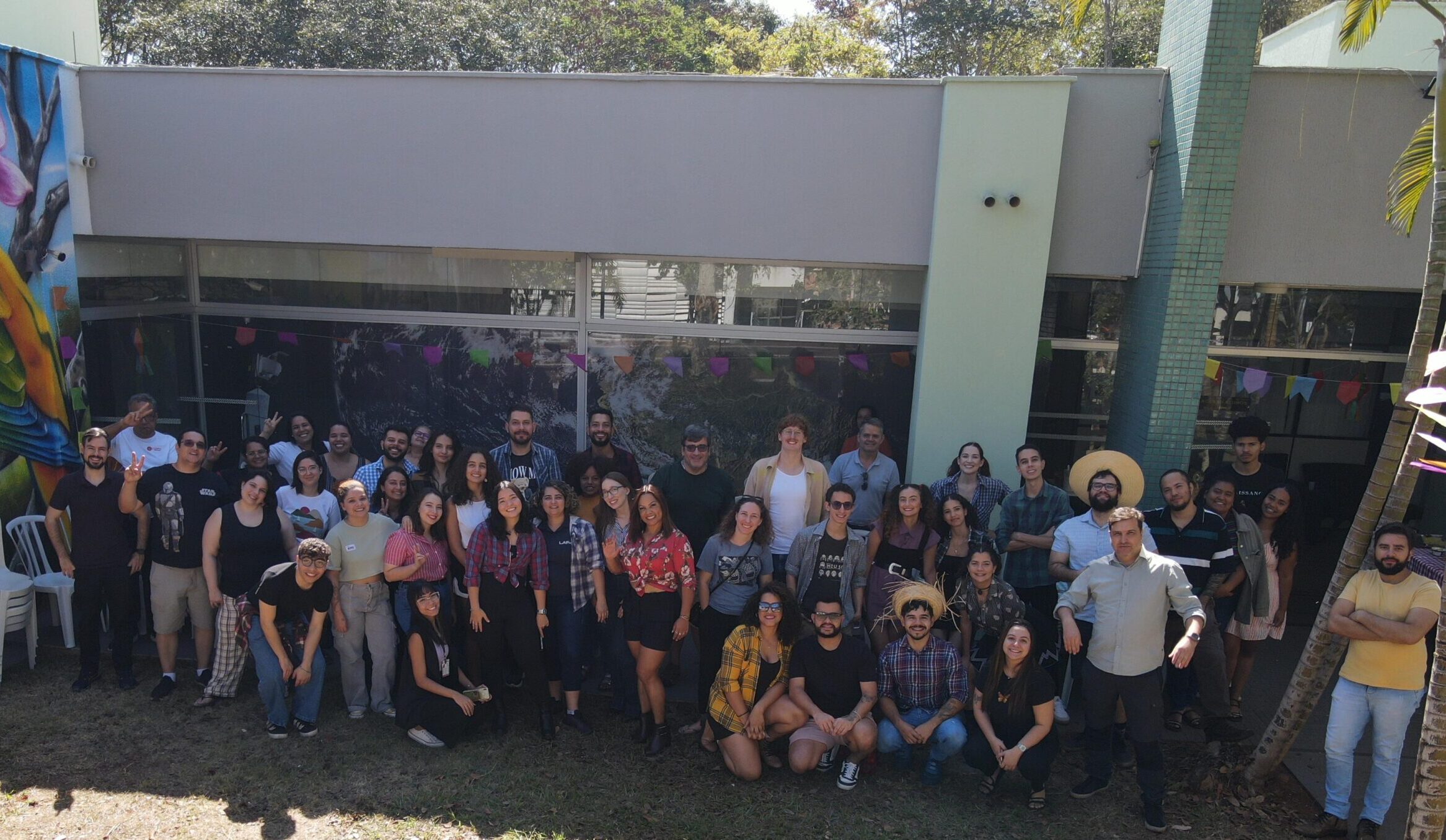Steinbrecher Fellow spends summer with ‘keepers of the pastures’

“This is the kind of project that is influential for a lifetime.”
While conducting geographic information science (GIS) research in Goiânia, Brazil, geography major Rowan Compton ’25, M.S./GIS ’26, stumbled upon a conflict between local “keepers of the pastures” — or fundos e fechos de pasto — and the international conglomerates that own the majority of farmland in the area.
Compton’s findings were part of a literature review for a NASA-funded project led by geography professors Robert Pontius and Gustavo Oliveira, who are researching irrigation expansion and pivots in the cerrado biome, a Brazilian savanna, in Western Bahia, about nine hours away from Goiânia. Compton’s summer research in Brazil was funded through Clark University’s Steinbrecher Fellowship.

“The land of the fundos e fechos de pasto has largely been stolen. Now, these irrigation pivots are coming in and their water is being stolen, too. The project is investigating that and predicting where irrigation is likely to expand in the future,” Compton says. “To do that, we have to figure out how people have approached irrigation expansion in other projects.”
This research is preparing Compton for his 4+1 Accelerated Master’s in GIS. His summer project also included work with the Brazilian GIS network MapBiomas, the world’s largest open science collaboration making land-change maps, as well as a collaboration with local English teachers.
Compton spent part of his time in Goiânia with the Image and Geoprocessing Laboratory (Labratório de Processamento de Imagens e Geoprocessamento, or LAPIG) at the Federal University of Goiás, Brazil, to map pastures and the cerrado. He worked under Ana Paula Matos, a post-doctorate researcher at LAPIG.
During two weeks spent researching land use at the Amazon Environmental Research Institute, Compton experienced different aspects of Brazilian culture.
“It was a fascinating and eye-opening experience getting to know such warm, open people, their delicious food, and the beautiful weather,” he says.
Compton’s desire to study in Brazil stemmed from his experience living in Portugal while in high school. He wanted to improve his Portuguese and assist local English teachers in his spare time.
“This is not a sociology project, but there are a lot of sociological strands throughout, and that has helped me to deeply consider the societal interactions here,” Compton, a sociology minor, says. “I think this connection between the cultures and societies is really at the heart of the project.”
Compton is contemplating his future and may pursue a doctorate.
“Contributing to a NASA-funded project really prepares me for applications to doctoral programs,” he says. His career desires are steered by a life-long passion for maps and the environment.
“When I was in the first grade, my class had to make an ‘about me’ book and write on the back cover what we wanted to do when we grew up,” Compton recalls. “I wrote that I wanted to work on Google Earth. Now I’m doing something very similar.”
Compton plans to return to Brazil next summer to continue studying land use and get better acquainted with the culture.
“I’ll be working on this project through the rest of my Clark career, and I’m sure it’ll travel with me beyond Clark,” he says. “This is the kind of thing that is influential for a lifetime.”



